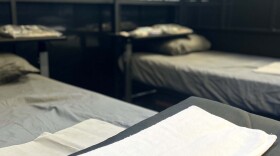San Diego County officials on Wednesday announced they expect the state to force some local businesses to roll back reopening as the region’s COVID-19 activity is growing.
The governor earlier Wednesday announced 19 California counties, but not San Diego, were ordered to shutter indoor operations for several businesses because they exceeded at least one of the state’s metrics that tracks the spread of the virus. Local officials said they expect San Diego to be added to the governor’s list by next week if new cases continue to surge.
San Diego County officials reported 474 new COVID-19 cases and seven additional deaths. The cases mark the fifth time in six days reported cases have topped 400. The seven deaths occurred between June 26 and June 30 and the ages of the deceased — three men and four women — ranged from 57 to 89, San Diego County public health officials said.
Of the 7,825 tests reported Wednesday, 6% came back positive. The 14- day rolling average percentage of positive tests is 4.5%. The county has now reported a total of 14,623 COVID-19 cases and 372 deaths.
Tuesday marked the highest number of patients in local hospitals on any given day due to COVID-19, with 493 hospitalized. Wednesday saw a drop to 453, but still a number considerably higher than a previous "peak" in late April.
While cases have spiked in San Diego County, it was the sole county in Southern California not directed by Gov. Gavin Newsom to halt much of their indoor business activity for at least three weeks.
Supervisor Nathan Fletcher attributed this to the county’s early response to the pandemic.
"We're the only Southern California county not forced to take action by the governor," Fletcher said. "I think that is partly because of proactive steps we took before other counties."
But San Diego is not immune. According to the state's metrics, San Diego County is officially "flagged" for recording positive COVID-19 cases at a rate of more than 100 per 100,000 people. The county reported a rate of 105 positive cases per 100,000 Wednesday. If that holds through Thursday — a trend Public Health Officer Dr. Wilma Wooten said she and county officials are already anticipating — the county will be placed on the state’s watch list, which could then lead to the more strict orders.
In short, unless case numbers and hospitalizations drop, San Diego County could be forced to restrict dine-in seating and other indoor business activities as soon as Monday.
Wooten indicated the county wasn’t proactively implementing the limitations to give establishments an adjustment period.
“These various businesses...will need time to come to the realization that they will be closed; they need time to do that,” Wooten said.
If applied to San Diego, the state’s restriction would last through at least July 27. Affected businesses would include restaurants, wineries, tasting rooms, movie theaters, zoos, museums, cardrooms and family entertainment venues, such as bowling alleys, miniature golf operators and arcades.
County officials already earlier this week announced restrictions on bars and restaurants to curb increases in outbreaks. That included setting a curfew of 10 p.m. for restaurants that serve alcohol.
Wooten said patrons already inside eateries but that time may stay inside until 11 p.m., but those locations must be closed from then until 5 a.m. each day. Staff required to clean those facilities may remain inside after closing hours.
The new restaurant closing time follows action earlier this week to halt all reopenings until at least Aug. 1 and to shutter all bars, breweries and wineries that don’t serve food. However, establishments can partner with other eateries, including food trucks, to provide their patrons grub and remain open. Wineries that serve outdoors are also excluded from the order that went into effect July 1.
According to County Supervisor Greg Cox, the longer people stay at restaurants, particularly if they are drinking alcohol, the more relaxed they get with social distancing, face coverings and other public health orders.
Other businesses that serve food and alcohol will have restrictions in place as well. Starting Wednesday, customers purchasing alcohol on-site must also purchase food, and both drinks and food must be consumed sitting down.
Another three community outbreaks were reported Wednesday, raising the one-week count to 13, well over the limit of seven San Diego County set for itself with a series of 13 triggers. The outbreaks came in a restaurant, a "food source" and an unspecified business. Of the week's 13 outbreaks, six were traced to restaurants or bars.
The county also hit a second trigger with a decline in the percentage of COVID cases employees began investigating within 24 hours over the last seven days. The goal is 70%, but that figure dipped to 69%.
Fletcher said that with the July 4 holiday weekend upcoming, closures were not anticipated for beaches like in Los Angeles County, as he said all community outbreaks in the county have come from indoor settings such as bars, restaurants and gatherings at private residences.
Oceanside announced Wednesday that it will close beach parking lots over the July Fourth weekend to minimize crowds, increase physical distancing and slow the spread of COVID-19.
City officials said beach parking lots west of the train tracks, with the exception of certain harbor lots near the Harbor Village, will be closed from 8 a.m. Friday until 8 a.m. Monday.
Newsom also announced Wednesday that all state beach parking lots will be closed Friday, Saturday and Sunday.







